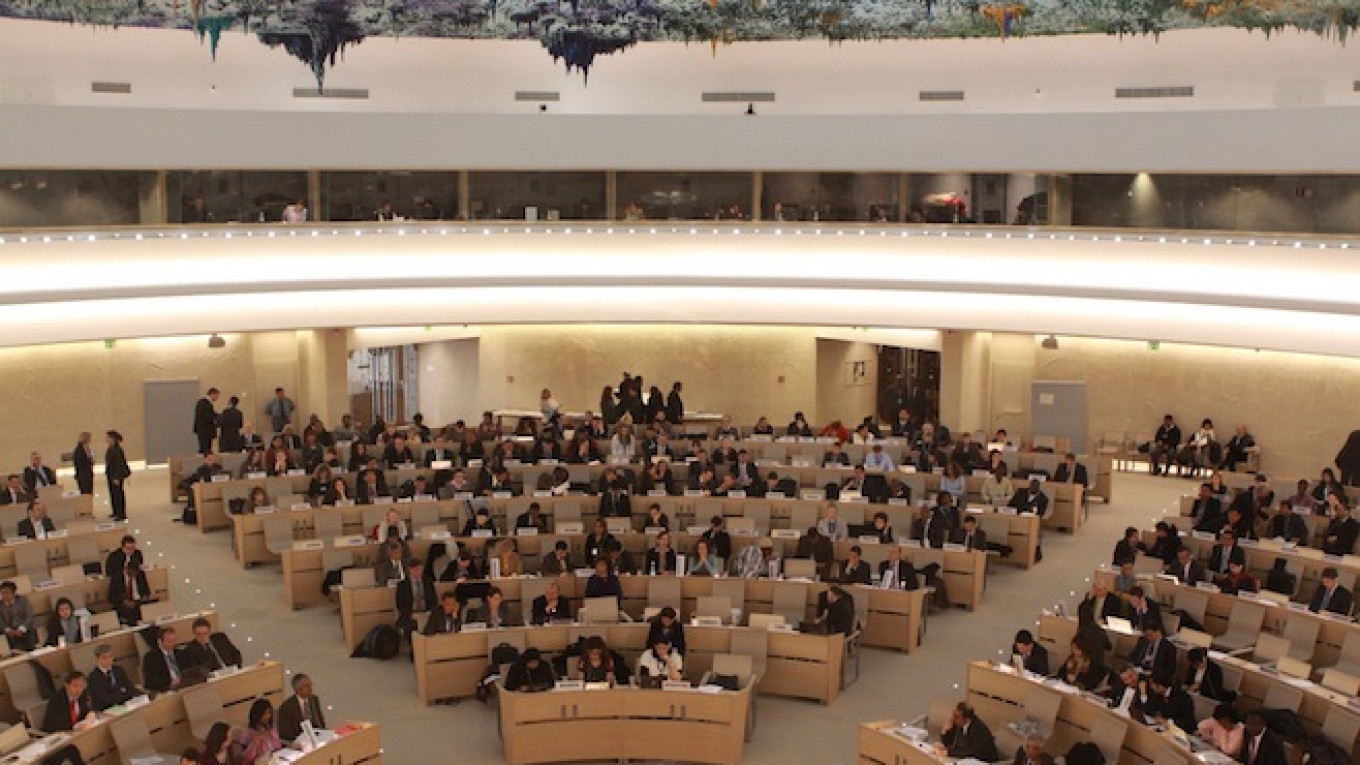Russia's Presidential Council for Human Rights has stood up for a small Crimean NGO that was last week included on a list of potential “undesirable organizations” whose work could be banned in Russia, calling on the relevant government bodies to exclude it from the final list.
The rights council argued that the Crimean Human Rights Field Mission (CHRFM) is not registered as a formal organization, and is a temporary joint initiative by human rights activists, according to a copy of the appeal posted on the council's website Tuesday.
Established shortly before Crimea was annexed by Russia in March last year, the group monitors human rights on the peninsula. In particular, it has documented a series of rights violations committed against Crimean Tatars and pro-Ukraine activists who opposed the annexation.
Last Wednesday, Federation Council senators compiled a list of 12 foreign NGOs that the senators say target the stability of the Russian state and should be declared “undesirable.” Under a new law, that means that any work they do in Russia — including in collaboration with Russian NGOs — could be banned.
The Presidential Council on Human Rights wrote to the Federation Council, as well as the Prosecutor General's Office and Foreign and Justice ministries, which have to approve the list before it can take effect, asking them not to include the CHRFM on the final list.
The council said in its appeal that it had used CHRFM's findings in its own work, and that President Vladimir Putin has also made orders based on information provided by the group.
Speaking with The Moscow Times last week, CHRFM head Andrei Zubarev mocked the idea that his group could pose a threat to the Russian state when it has no budget or office and is staffed by five volunteers working in Crimea.
Through its inclusion on the list, the CHRFM found itself in the company of mammoth American NGOs with worldwide reach such as the National Endowment for Democracy and the International Republican Institute.
Putin has repeatedly said that Western governments use complicit NGOs in order to foment dissent and ignite anti-Russian revolutions in former Soviet countries. Russian lawmakers have adopted a series of new laws imposing stricter regulation of the country's civil society in order to prevent such a scenario in Russia.
A Message from The Moscow Times:
Dear readers,
We are facing unprecedented challenges. Russia's Prosecutor General's Office has designated The Moscow Times as an "undesirable" organization, criminalizing our work and putting our staff at risk of prosecution. This follows our earlier unjust labeling as a "foreign agent."
These actions are direct attempts to silence independent journalism in Russia. The authorities claim our work "discredits the decisions of the Russian leadership." We see things differently: we strive to provide accurate, unbiased reporting on Russia.
We, the journalists of The Moscow Times, refuse to be silenced. But to continue our work, we need your help.
Your support, no matter how small, makes a world of difference. If you can, please support us monthly starting from just $2. It's quick to set up, and every contribution makes a significant impact.
By supporting The Moscow Times, you're defending open, independent journalism in the face of repression. Thank you for standing with us.
Remind me later.


